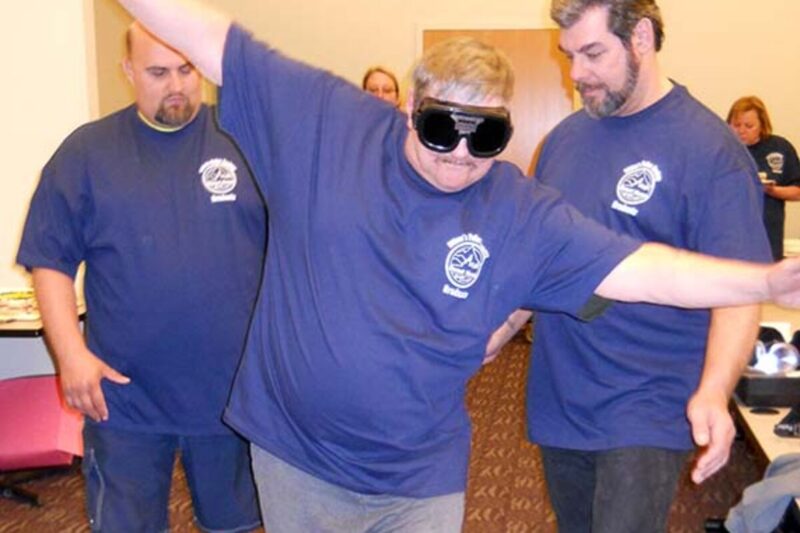Sean C. Morgan
The Sweet Home Police Department is planning to resume its Citizens Academy classes after the first of the year with a new format twist.
This time, instead of a multi-week series, the academy program will be held in a single day.
“We’re giving this a try,” said Community Services Officer Gina Riley. “The last two academies we presented to the public, we didn’t get enough to do it. We had five last time. We need 10.”
Since the Citizens Academy was founded in 2009, the department has offered one or two per year.
The academy offers residents a chance to see what life is like inside the walls of the police department and its cruisers. It covers many realities of police work, from day-to-day patrol to criminal investigations.
Police officials have wondered if the lack of interest in the past year has to do with the length of the program overall, with one-hour sessions held over eight weeks.
“We’re looking at maybe condensing it,” Riley said. Classes would be reduced to a half hour, and the overall session would be six to eight hours on a single day.
The department will use an officer who is on duty for large portions of the classes, Riley said, and bring in other police officers as needed for the program. It will continue to include a MILO session, in which participants are able to take on the role of a police officer in simulations of use-of-force scenarios.
“We were hoping to do it by the end of the year, but it looks like it’ll be the first of the year,” Riley said. Schedules are full of events throughout the rest of this year.
Most Police Department volunteers have taken the Citizens Academy, Riley said, and the department encourages volunteers to take it.
Much of the program includes hands-on activities, Riley said. That includes the MILO simulator.
“That will be an optional thing at the end of the class,” Riley said. During the program, police discuss the use of force. Members of the class have the option to participate or watch the simulations.
During simulations, life-size video images are displayed. The participant is armed with a laser equipped simulated handgun. The video depicts a scenario, and participants act as police officers, issuing orders and instructions to the subjects in the video and potentially escalating the use of force.
Based on what a participant does, a training officer inputs the choices into the simulator, like a “Choose Your Own Adventure” novel, causing the subjects in the video to react.
Participants feel what it’s like to be a police officer who must make split-second decisions, Riley said.
Police officers also train with the MILO simulator.
The classes cover a variety of material related to law enforcement, Riley said. Among topics participants learn about major crimes, the investigation process, the use of evidence, the process required to obtain a search warrant, defensive tactics and narcotics.
Officers describe what they do and how they have to do it, Riley said. Among the details, participants can learn more about fingerprinting, for example, what it can do, what it takes to run fingerprints, which is different than it appears in the movies and on TV.
Department officials talk about traffic stops, what people should do if they are stopped, Riley said, and they talk about recruitment.
During hands-on activities, participants may handle weapons during the session on defensive tactics, Riley said. If there is time, someone will wear a “HIT” suit, a protective suit used during defensive tactics training.
The class on narcotics is a place where participants are able to look at real narcotics and talk about the dangers of using them, Riley said. Officials describe the processes involved in handling them and how they detect their usage.
The school resource officer and K9 officer and dog are included in the program.
People often don’t have a good perception of what it’s like to be a police officer, Riley said. This program helps to provide an inside look.
The objective is “for residents to get a behind-the-scenes look at what happens,” Riley said. Other than this, the only interaction residents may have with law enforcement is a traffic stop by a police officer or talking to a dispatcher.
The program provides an explanation for the time it often takes to resolve a reported crime or to develop a case against drug dealers, she said, and it outlines the mundane activities that keep officers busy – like writing arrest reports after a busy day at work before they can go home.
It’ll be a good day full of a lot of information for the public, Riley said. “We just really would like people to sign up.”
Anyone interested in participating in the Citizens Academy should contact the Police Department at (541) 367-5181. The program requires an application. It is open to all adults and to high school students who are interested in a possible career in law enforcement or a similar career path.





